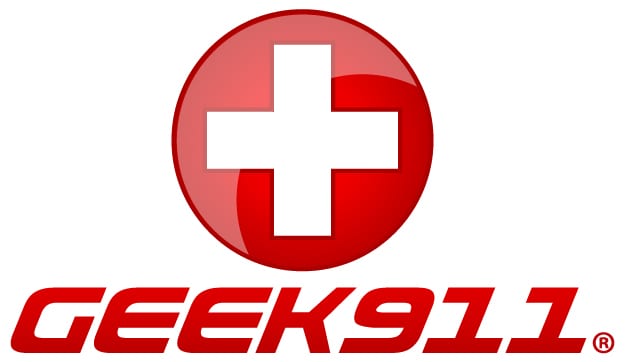10 Commonsense Reasons to NOT Move to the Cloud
While cloud-based applications may be the newest trend in business systems, just because someone else is doing it doesn’t mean you should automatically follow suit. Cloud computing does have many benefits, but there are also some major disadvantages.
At GEEK911, our first priority is to our clients’ needs, so we help them make the best decisions about going cloud or not, depending upon which better supports their business. For those that would rather stick with local server applications, our managed IT services for companies in the Santa Clara, California area can take all the hassle off their hands with comprehensive, low-cost service and maintenance.
If more companies are adopting cloud-based technologies every year, what are some of the reasons you’d want to hold back from a move to the cloud?
In our experience, there is no “one-size-fits-all” solution to business IT. That’s why we tailor both cloud-based and non-cloud-based options for each individual client to give them the best value and bang for their buck.
What are the Reasons I Should Not Move My Business to the Cloud?
Cloud applications have many benefits, such as flexibility, scalability, business continuity, and more, but going “all in” with the cloud isn’t without some serious drawbacks.
66% of IT professionals say security is the biggest concern about using cloud computing platforms. (RedLock)
Here are some key reasons companies decide not to move to a fully cloud-based workflow.
1. Less Control Over Your Data’s Security
When you use a cloud-based application, you’re entrusting the security of your data to a 3rd party. While some may garner more trust than others (such as Microsoft’s Office 365), you’re still handing over sensitive data on your company, employees, and customers to another party who is hosting your data on a server that’s sight unseen.
2. You’ve Got to Have Good Internet
To connect to cloud-based applications, you have to use the internet. So, if your Wi-Fi is down, so is your office if you’re using all cloud software. For those in more remote areas that have a poor internet connection, getting anything done could take much longer than if you were running your software locally.
3. You’re Locked into a Subscription Model
As opposed to just paying for software once and keeping it forever, cloud-applications run on a subscription model where you pay per user per month or per year. If your budget is tight one month, you could end up losing your service, putting your office at a standstill.
4. If It’s Not Broke, Don’t Fix It
If using locally-based software and backups to your own server are working just fine and you don’t have any bottlenecks in your workflow, there’s no reason to change. Adding new systems when you don’t need them can cost you in productivity and interruptions while staff are learning a new platform.
5. Extra Vendors to Deal With
When you’re using your own local applications, you can work with one IT expert for all your IT services, which makes life much easier. If you move to cloud-based applications, you’ve just added to your list of vendors that you have to pay monthly or yearly and coordinate with on several cloud-based services, such as:
- Accounting
- HR
- Customer Ticket Support
- CRM/Sales
- Team Messaging
- Marketing
6. Cloud-Based Services are Hacker Targets
Data breaches are costly for any organization, and it’s doubly frustrating when your data has been breached by a trusted cloud-vendor. Because cloud companies host so much sensitive data from a variety of clients, hackers know that breaching their systems can mean a jackpot of data to steal.
7. Long-Term Costs of Cloud Computing are Higher
While the short-term cost of buying and maintaining your own server may be higher than going with a cloud solution, in the long-term, you’ll typically save money. It’s somewhat like the difference between renting and buying a home. Up front renting is cheaper, but over the years, you’ll end up paying much more than if you owned your home. The same can be said of purchasing your own server and software that’s yours forever.
8. Certain Applications Run Better on a Local Server
When you first do a computer back up to a local hard drive, the instructions will often say that the backup will go faster if you’re connected via an ethernet cable versus wirelessly. If you are using applications or crunching data that demands a lot of bandwidth or running an environment that requires a lot of IP addresses, a local system could be much faster than doing it over a cloud-based one.
9. Where in the World is My Data?
With some cloud solutions, you may not know which country is the base for the server holding your data, which can cause some issues if your industry is subject to stringent data security regulations or if you’re a government contractor. Knowing where your server is and being able to physically see and maintain the server holding your data provides much more peace of mind when it comes to regulatory compliance.
10. You Can’t Control Reliability
What happens if you’ve been using a new cloud-based solution for 6 months or a year, then suddenly they start having downtime problems or go out of business completely? You’re out of luck and may have suffered a major data loss if you didn’t have a redundant backup. You have no control over a 3rd party’s cloud-based business or how reliable it is.
Call GEEK911 for Local Server Setup and Maintenance
Are you happy with your local setup, but would like some help optimizing and maintaining it? GEEK911 can help! We can handle internal ethernet cabling, maintenance of updates and patches, and troubleshooting issues immediately.
We’re here and waiting to give you your free IT consultation! Schedule one online or call us today at 1-866-433-5411.
